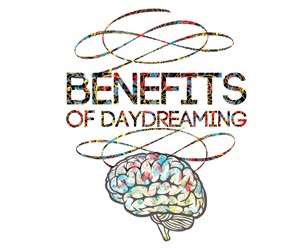
Have you ever thought you were well-prepared for an upcoming quiz, only to find that you’ve forgotten much of what you studied once it was time to take the test? If so, you may benefit from adding some of these simple memory-boosting techniques into your study routine.
Plan ahead, do not cram
Many studies show that cramming is not an effective tool for learning, and the stress it brings only reinforces the argument against its use. Distributed learning is generally better for memorization than cramming. What this means is that you should attempt to learn material over the course of time rather than during any single session. Plan ahead! Work backwards from your examination dates. As exam dates might be packed closely together, you need to make sure that you have sufficient time to revise (writing notes, doing practice papers and clarifying doubts). One strategy that seems to help in consolidating memories is to periodically conduct a short test reviewing what you have studied over an extended period of time (at least a few months ahead of the examinations).
Try to study in a setting that is similar to where you will be tested
It sounds simple, but if the testing is to take place at a desk it may be useful to study at a desk, and not on your bed, or where you would get easily distracted. Other strategies that can make the exam setting more realistic is to have similar noise levels (i.e., quiet!), or to use the same materials and tools at home that will be used during testing. Even drinking the same drink — be it tea, coffee, or water — while studying and taking the test can boost memory. The best option, however, is to do the bulk of the studying and memorizing during the same general time of the day, so that your body has the same level of preparedness and absorption.
Recap information just before you go to sleep
There have been a number of studies that indicate that if you quickly review material 15 minutes before going to sleep at night, you will be better able to tap into the information later, keeping it from slipping away into dreamland. Remember, this is not a full study session before bed — which can cause stress — but rather a simple recap, like reading or verbalizing out loud what you have already studied.
Schedule short breaks during revision and have sufficient sleep!
When trying to memorise new material, it’s easy to assume that the more work you put in, the better you will perform. Yet taking the occasional down time – to do literally nothing – may be exactly what you need. Just dim the lights, sit back, and enjoy 10–15 minutes of quiet contemplation, and you’ll find that your memory of the facts you have just learnt is far better than if you had attempted to use that moment more productively.
Learning and memory are often described in terms of three functions. Acquisition refers to the introduction of new information into the brain. Consolidation represents the processes by which a memory becomes stable. Recall refers to the ability to access the information (whether consciously or unconsciously) after it has been stored.
Each of these steps is necessary for proper memory function. Acquisition and recall occur only during wakefulness, but research suggests that memory consolidation takes place during sleep through the strengthening of the neural connections that form our memories.
When we are sleep-deprived, our focus, attention and vigilance drift, making it more difficult to receive information. Without adequate sleep and rest, over-worked neurons can no longer function to coordinate information properly, and we lose our ability to access previously learned information.
Engage in more physical and mental exercise
Research has shown that regular physical exercise is one way to improve cognitive functions like memory recall, problem solving, concentration, and attention to detail. However, it is not clear if the physical aspect alone boosts your brain or if a combination of other factors — like the mental challenge of the activity, the frequency you do it, and the desire to improve — also contribute.
A brain training activity doesn’t always have to be exercise-related. Much research has found that creative outlets like painting and other art forms, learning an instrument, doing expressive or autobiographical writing, and learning a language also can improve cognitive function. A 2014 study in Gerontologist reviewed 31 studies that focused on how these specific endeavors affected older adults’ mental skills and found that all of them improved several aspects of memory like recalling instructions and processing speed.
Your brain has the ability to learn and grow as you age — a process called brain plasticity — but for it to do so, you have to train it on a regular basis.
Is possessing a superb memory necessarily a beneficial thing for everyone?
Consider discussing from these various perspectives:
- For a student who is preparing for a big examination
- For parents who have lost their child
- For a victim who has experienced a trauma
- For a dementia patient and a family member of a dementia patient
- For an eyewitness of an accident/suicide/abuse
https://learningworksforkids.com/2013/04/5-tips-for-improving-memory-while-studying/
http://healthysleep.med.harvard.edu/healthy/matters/benefits-of-sleep/learning-memory
https://www.bbc.com/future/article/20180208-an-effortless-way-to-strengthen-your-memory
https://www.health.harvard.edu/mind-and-mood/train-your-brain



















